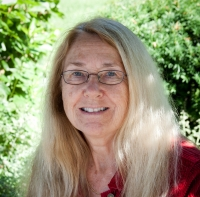
|
Judith Van Houten, PhD.
Welcome to the launch of the VT EPSCoR Newsletter in a new electronic format. We hope you will find this a convenient way to stay informed about our program as we continue to enhance our communications efforts through print, web, social media and broadcast efforts.
In this issue you will find news around the three active awards that VT EPSCoR has from the National Science Foundation: The RII Track-I Adaptation to Climate Change in the Lake Champlain Basin: New Understanding through Complex Systems Modeling (RACC). The RII C2 – Improving Connectivity between the University of Vermont and the Vermont State Colleges for STEM Research and Education; and our most recent award, the RII Track – II which formed the North East Resource network (NEWRnet) – a consortium among Delaware, Rhode Island and Vermont – with Vermont as the lead.
All combined, this suite of funding sources aims to strengthen the science, technology, engineering and mathematics (STEM) infrastructure across the state and region through investments in areas of importance to Vermont and the nation. These investments are made in the human and physical infrastructure around the themes of water, adaptation to climate change and cyber connectivity. Very importantly, the natural and social sciences are tightly integrated in our research in order to bring use-based research to Vermont that is of value to the region and the Nation.
Our annual meeting in May highlighted the progress of our first two years of RACC and C2 research. We were reminded by our NSF visitors that RACC research is on the cutting edge of use-based research that integrates disciplines including social science is the new national direction for funded science. Our Director of the VT EPSCoR Center for Workforce Development and Diversity, Miranda Lescaze, and co-workers presented our work with undergraduates, high school teams, and middle schools as they participate in RACC research and get a taste of STEM careers. Dr. Patrick Clemins organized an inspiring panel from the private sector, who told of their experience with SBIR applications.
The very popular Grant Writing Workshop was hosted with the Vermont Genetics Network (VGN) on September 7, 2013 with over 175 registrants. There were breakout sessions for graduate students, postdocs, faculty and private sector investigators. Our External Advisory Council member, Dr. Anna Michalak, held a video-conference in July with members of the RACC group to discuss her experience with grant mechanisms that could help to sustain our RACC research into the future. As part of the September 7 workshop, the RACC researchers worked with a facilitator on next steps in follow on funding. This RACC team effort builds from their experience at NSF in March when 17 faculty, postdocs and graduate students visited NSF for a day, meeting with many different program officers, the head of the NSF EPSCoR Office Dr. Denise Barnes and the Head of the Office of Integrative and International Activities Dr. Wanda Ward. To learn more about the Workshop, please visit http://epscor.w3.uvm.edu/2/node/1594
Finally, to learn more about the RII Track-2 NEWRnet award for research with Rhode Island and Delaware that is complementary to RACC with Dr. Andrew Schroth, UVM Geology Dept., as Co-PI of the grant, please visit: http://www.nsf.gov/news/news_summ.jsp?cntn_id=128509&org=NSF&from=news
Best wishes,
Judy
P.S. We hope you enjoy the first issue of the VT EPSCoR newsletter available in a new electronic format!
|

